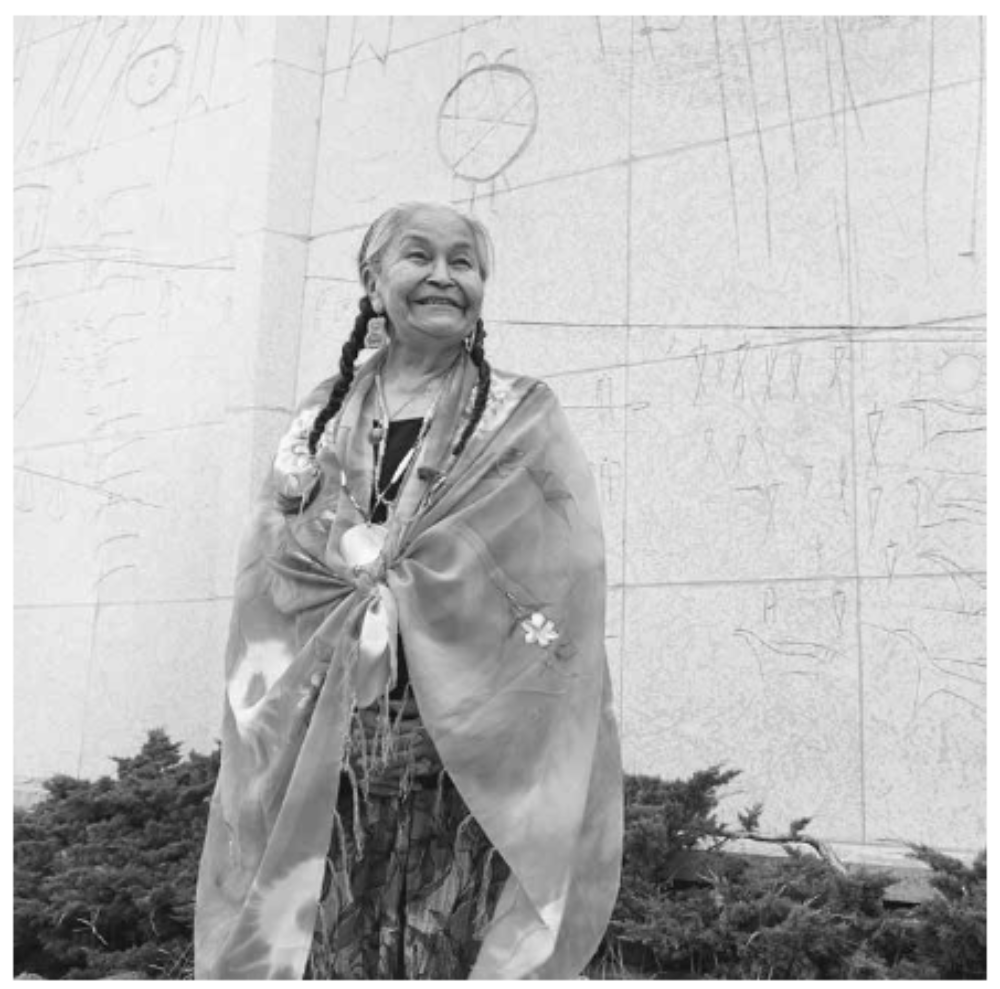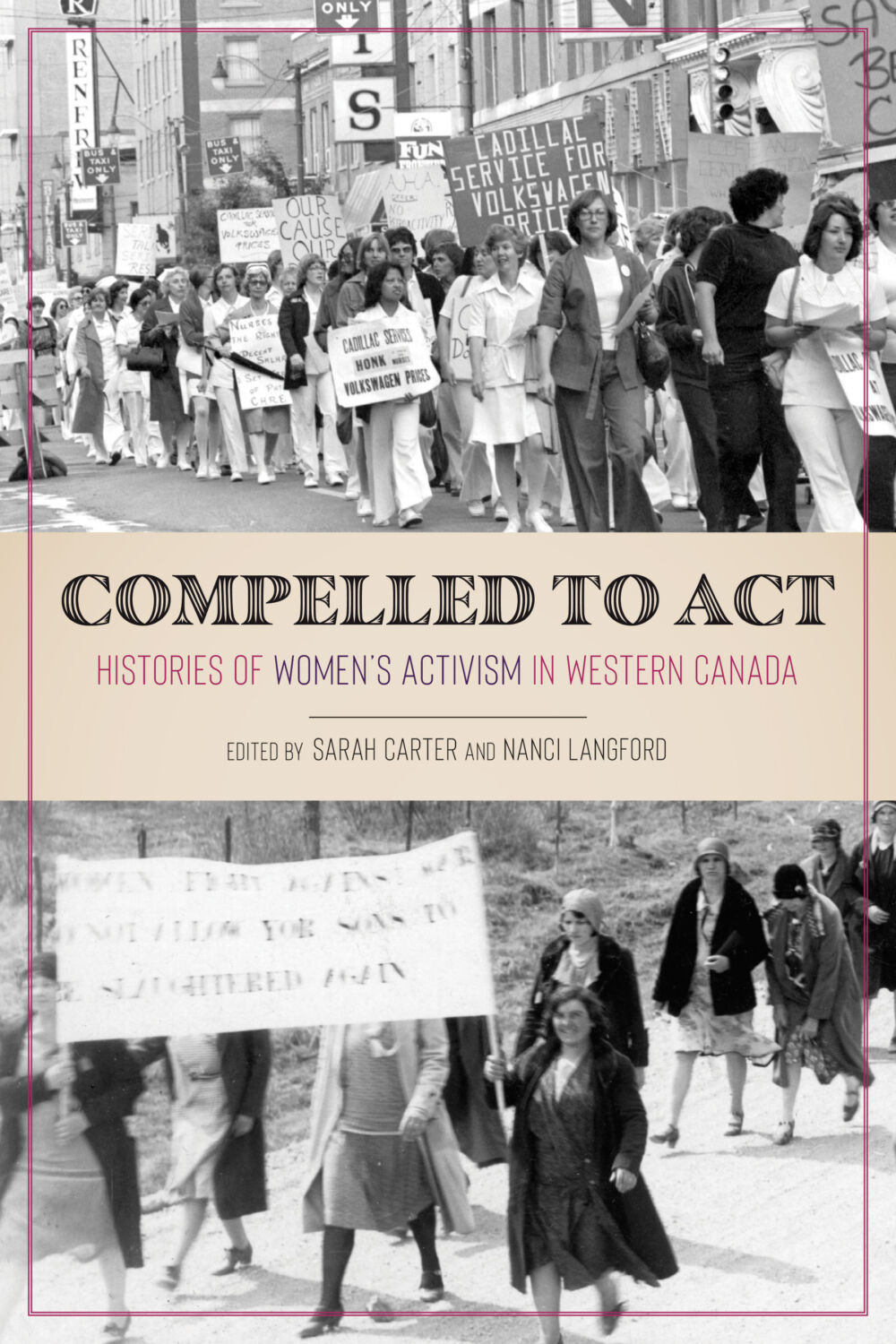Compelled to Act is dedicated to Lillian Shirt, who was born on the Alberta Saddle Lake Cree First Nation in 1940 and who passed away in Edmonton in 2017.


She was an activist for many causes, beginning in the summer of 1969 when she set up her grandmother’s tipi in Edmonton outside of the City hall and later on the grounds of the Alberta Legislature Building to protest discrimination in housing. She had been evicted and no landlord would rent to this Cree, single mother. Her activism that summer was the catalyst for the creation of a provincial plan for welfare housing.1
Lillian did not stop there. It would take many pages to list all of her activities since that summer.
That same year she helped to establish the Alberta Native Peoples Defense Fund to provide legal aid to Indigenous men and women. She took part in the 1969 Alcatraz Island occupation by Native Americans. For five years, she lived in the Kootenay Plains at the Smallboy Camp, founded by Chief Robert Smallboy to draw attention to the conditions of Indigenous urban and reserve people. There she helped establish the Robert Smallboy school.
Many of her activities from the sixties through to the new millennium related to the welfare and education of both mothers and children, and they included the Nekawe Daycare, established in 1972, where the first language was Cree.
She was an organizer of the Sacred Circle program offered at Prince Charles School, Edmonton, where elementary students still receive Cree language instruction and where the needs of urban Indigenous students are addressed.
Along with her sister, the late Jenny Margetts, Lillian helped to found the organization Indian Rights for Indian Women that fought for decades for equal rights for First Nations women to end their discrimination under the Indian Act. she was a supporter of the Nechi Institute in St. Albert, Alberta, that changes lives based on compassion.
She was still organizing and planning until she passed away in the summer of 2017, beloved in the memory of her six children, thirty-one grandchildren, and thirty-five great-grandchildren.
The story of Lillian’s 1969 conversation with John Lennon, and her possible role in inspiring the song “Imagine” was first described by historian Corinne George in her master’s thesis.2 Lillian’s tipi protest received national press coverage, at the time John Lennon and Yoko Ono were in Canada. They arrived in Toronto in May and two days later began a week-long “bed-in” for peace at the Queen Elizabeth Hotel in Montreal.3
The next day in the Montreal Gazette an article titled “Cree woman believes injustice in housing—pitches a teepee” appeared. Lennon and Ono might have read that or any of the many other articles that covered her protest. Lennon asked if he could speak to Lillian and did so through the Edmonton radio station CJCA. he said, “I want to support you. What would you like me to say to the world?” Lillian replied with the words of her Cree grandmother and translated it for Lennon: “‘Imagine that if, there was no hate, if we loved each other, we loved one another, that there would be no war between us.’ And he said “Do you mind if I use that?” According to Lillian, he had a real thick English accent, eh? . . . I said, ‘yeah, go ahead, you can use that.’”4 Lennon said that he was writing down the words on a pillow case. It was not until she heard the song “Imagine” over the radio some years later that Lillian remembered the interview and giving permission to John Lennon to use the words of her Cree grandmother.
As interesting as this story is to many, its significance is minor compared to Lillian’s long and productive career as an activist for Indigenous people in Alberta and Canada. We were privileged that Lillian shirt was elder at the 2016 conference history of Women’s Political and Social Activism in the Canadian West at the University of Alberta. she gave the opening blessing, was present at Corinne George’s paper on the activism of her and other Indigenous women in Alberta, and was a valuable participant in many sessions.
In between she could be found deep in conversation with the conference delegates, always the educator.
Notes
1. “Province’s plan for Welfare Funding,” Edmonton Journal, 7 July 1969, 4.
2. Corinne George, “‘If I Didn’t Do something, My spirit Would Die’: Grassroots Activism of Aboriginal Women in Calgary and edmonton, 1951–1985” (MA thesis, University of Calgary, 2007). see also Lillian shirt, Corinne George, and Sarah Carter, “Lillian Piché shirt, John Lennon and a Cree Grandmother’s Inspiration for the song ‘Imagine,’” 5 December 2016, available at http://activehistory.ca/2016/12/lillian-piche-shirt-john-lennon-and-a-cree-grandmothers-inspiration-for-the-song-imagine/ .
3. Ritchie Yorke, “Lennon and ono bring message for youth to Canada,” Globe and Mail, 27 May 1969, 13.
4. Quoted in George, 78.
Posted by U of M Press
October 20, 2020
Categorized as Excerpt
Tagged activism, community, cree, culture, education, history, indigenous, women
The politics of loss and survival in Anishinaabe territory Looking Out From Anishinaabe Territory
